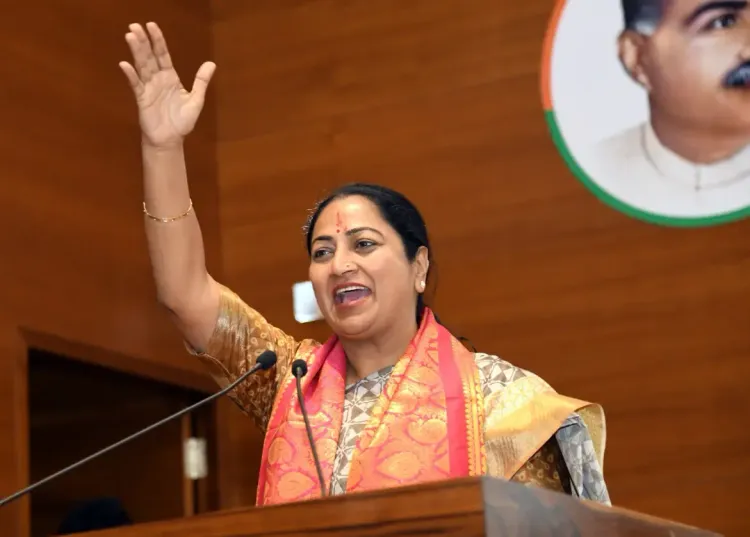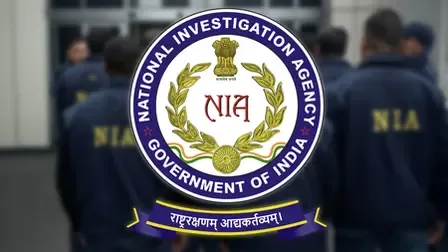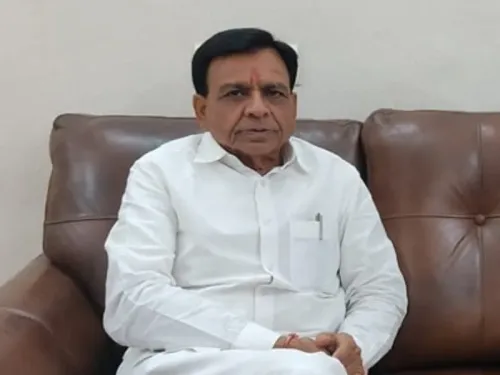Renovation of ‘Sheesh Mahal’ Faces Criticism: BJP to Present CAG Findings in Delhi Assembly

Synopsis
Key Takeaways
- Presentation of 14 CAG reports by BJP government.
- ‘Sheesh Mahal’ renovation saw costs soar from Rs 7.61 crore to Rs 33.66 crore.
- Multiple irregularities identified in planning and execution.
- Concerns over contractor selection and project management raised.
- Significant increase in project scope and costs noted.
New Delhi, Feb 24 (NationPress) The BJP-led Delhi government is set to unveil 14 outstanding reports from the Comptroller and Auditor General of India (CAG) regarding the performance of the prior AAP administration in the Delhi Assembly on Tuesday (February 25).
A significant finding from the CAG reportedly expressed grave concerns over the renovation of the former Chief Minister Arvind Kejriwal's official residence located at 6 Flag Staff Road, which the BJP has dubbed ‘Sheesh Mahal’. Initially approved at a cost of Rs 7.61 crore in 2020, the expenditure skyrocketed to Rs 33.66 crore by April 2022, indicating an astonishing 342 percent increase, as per sources.
The CAG's audit allegedly underscores numerous irregularities in both the planning and execution phases of the renovation project.
One of the primary issues highlighted by BJP officials was the inflated project cost. The Public Works Department (PWD) had originally prepared a preliminary estimate (PE) of Rs 7.91 crore, based on the Plinth Area Rates published by the Central Public Works Department.
However, the project was ultimately awarded for Rs 8.62 crore, which is 13.21 percent above the initial estimate, according to sources. Despite this, the final expenses reportedly soared to Rs 33.66 crore, far exceeding the projected amount.
The report also reveals issues concerning the tendering and consultancy processes, sources indicate.
The audit purportedly discovered that the PWD did not provide adequate justification for the selection of the three consultancy firms chosen for the restricted bidding. The cost of the consultancy work was derived from outdated rates, which were subsequently increased by 50 percent, sources claim.
Furthermore, the contractor selection process was criticized for being arbitrary. Only one contractor possessed the necessary experience for the job, which raised concerns regarding the transparency of the bidding process, sources report.
The CAG also examined modifications made to the renovation's scope.
During the project, the built-up area expanded by 36 percent, from 1,397 sq.m. to 1,905 sq.m.
The report also pointed out that several items of superior specification, including artistic, antique, and ornamental works, were integrated into the project.
These additional features significantly inflated costs, with Rs 18.88 crore spent on implementing these high-end items, sources disclosed.
The audit allegedly found that the PWD did not consider tendering for additional work and instead continued awarding contracts to the existing contractor.
Consequently, the final expenses escalated further, with some works valued at Rs 25.80 crore executed without appropriate approvals.
Another notable issue in the report pertains to the renovations of the Chief Minister’s staff block and camp office. Initially estimated at Rs 18.37 crore, the work was awarded at Rs 16.54 crore through restricted tendering.
Nevertheless, the audit indicates that funds were redirected from the sanctioned amount for other purposes.
The staff block was never built according to the original design, and funds were instead allocated for constructing seven servant quarters at a different location, unrelated to the original project, sources assert. The CAG’s report has “raised significant questions about the transparency and financial management of the renovation project”.









